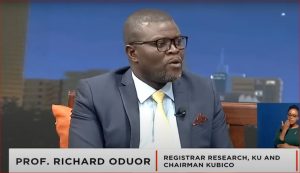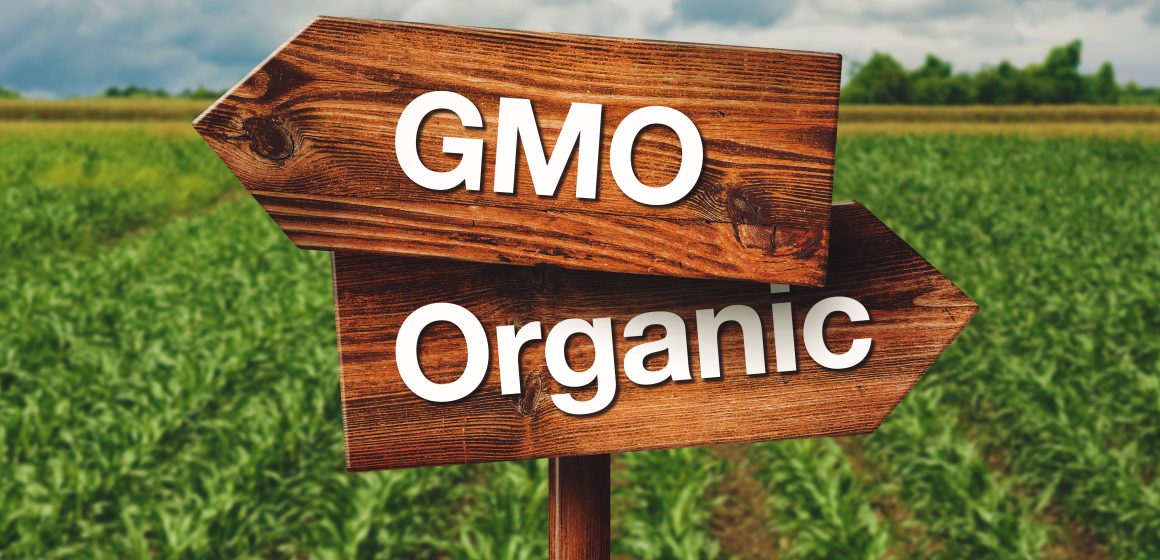Steve Mokaya | The Africana Voice Chief Correspondent, contributed to this report.
Drama as debate surrounding the GMO debate moved to the next level after the Kenyan High Court temporarily suspended the importation and distribution of GMOs pending the determination of a lawsuit filed against the government decision to lift a ban on the materials.
Responding to a Kenyan Peasants League, a lobby representing small scale farmers, Judge Mugure Thande rule for a temporary stay as the parties presented their arguments before the court. The lawsuit alleges the government move was unconstitutional because it didn’t allow for public participation, eliminate regulatory protocols on GMOs and exposes poor Kenyans to health risks posed by consuming GM foods.
The court ruling is a new twist to a raging debate among Kenyans all over the world on whether to import GMO foods and comes almost a week after Cabinet Secretary for Trade Investment and Industry Moses Kuria made incendiary remarks suggesting GMOs were just one more thing that could kill Kenyans implying Kenyans’ destiny was doomed either way.
ALSO READ: Scientists Defend GMO Technology; Fight Disinformation
While addressing traders and investors last week, Kuria said:

“We have so many things that can kill us in the country. Being in this country, you are a candidate for death. And because so many things compete for death, there is nothing wrong with adding GMOs to that list. That is why we have deliberately allowed GMO until we are satisfied that we have enough maize, the staple food.”
“In view of the food situation in the country, I shall be signing instruments to allow duty-free imports of GMO and non-GMO maize for the next six months.”
The statement kicked off a storm with Kenyans online and calling out the CS for taking jokes too far and not taking Kenyans’ lives seriously.
It’s unclear why Kuria in his capacity as the CS for trade and not the CS for Agriculture, Mithika Linturi, is the one speaking on behalf of the government in the matter of the importation of foods in the country.
Linturi has since clarified that he’s the man in-charge of Agricultural matters and he’d be releasing a new directive in 72 hours.
“I am the custodian of how much food we need and how much is the deficit. Hold your horses because I want to give you a position that is ready to defend. I will give a more comprehensive report on the national food status at a later date when I have all the data. Relax, you will have food,” Linturi said, according to The Nation.
Adding to the perception of confusion within the government, Linturi appears to have given farmers an opposite directive asking them to hold on to their produce instead of making them available to the market and cover the looming shortfalls impacting the country.
“You cannot be forced to sell your produce. I ask farmers, those who have surplus, don’t sell everything until you have nothing to eat. I assure the country that we are working day and night to ensure there is food in the country. Not just food, but food with the right nutritional content. We will ensure the cost of food is brought down., and I’ll go out of my way to Make sure that happens,” Linturi said according to The Nation.
Kenyans are concerned that lifting the ban on GMOs is just a back door avenue for corrupt politicians to import maize and profit at the expense of local farmers. North Rift politicians have asked the government to stop the imports and allow farmers in Trans Nzoia and Uasin Gishu an open market for their harvest.
Kenya’s new government is in a tight spot to take decisive action to solve food shortage problems affecting several parts of the country and lower the prices of unga in line with the campaign promises. Feeding the nation is however proving difficult due to a biting drought that has impacted the region after annual rains failed to materialize for almost 5 years.
Bill Gates
But the debate is rife with fear and disinformation with conspiracy theories spreading in WhatsApp groups and social media that GMOs were a plot to eliminate indigenous African foods and make them dependent on GM foods multinationals affiliated with philanthropist –turned farmland owner and Microsoft Billionaire Bill Gates.
Gates’ recent high-profile visit to the country at the heat of the GMO debate added fuel to rumors that he was in the country to capitalize on the just-lifted ban on GMOs.
Speaking to University students, Gates promised The Bill and Melinda Gates Foundation would spend $7 billion in the next 4 years to help Africa fight hunger, disease, gender inequality and poverty.
“The big global challenges we face are persistent. But we have to remember, so are the people solving them,” Gates said. “Our foundation will continue to support solutions in health, agriculture, and other critical areas—and the systems to get them out of the labs and to the people who need them.”
Despite the rumors, President William Ruto welcomed Gates and released photos of their meeting at State House Nairobi on his Twitter page.
“We appreciate the support the Bill & Melinda Gates Foundation continues to extend to Kenya in realising our development goals, especially in the areas of healthcare, agriculture and ICT sectors,” Ruto said in a tweet.
Backlash from the opposition
It didn’t help that right after Kuria’s comments, that local media reported a ship carrying more than 10,000 tons of maize docked in the port of Mombasa November 22 with maize. According to local media the ship brought maize from Mozambique.
Kuria’s statement triggered a backlash.
Opposition leader Raila Odinga, in a statement, asked the CS to apologize to Kenyans for his utterances. Odinga also called out Ruto’s administration for lifting the GMO ban and asked Parliament to rescind the decision.
“We in Azimio La Umoja want to state categorically that this decision – which has been made without deliberation or public participation – will have far-reaching and catastrophic implications for Kenya’s agriculture, the health of the Kenyan people, and our environment.
“We consider the decision to lift the ban on GMO foods and their importation a betrayal to our country. On this, the Ruto administration is not working for Kenya. He is being a puppet, working for foreign nations and their multinationals against our interest as a nation.
The Azimio statement asserted the need to involve the public in deciding whether to allow GMO foods in the country and said no scientific study or evidence clears GM foods as fit for human consumption.
GM foods are however accepted for human consumption in advanced nations like the US.
GMO research in Kenya and Worldwide
Research about GMOs has been ongoing for decades, even in Kenya. The International Service for the Acquisition of Agri-biotech Applications (ISAAA) tracks the usage of GMO foods worldwide and has issued reports since 2000.
One project cited in the ISAAA targeted genetically modifying Eucalyptus trees in Kenya to fight deforestation. The study kicked off in 1997, three years before former President Daniel Arap Moi signed the Cartagena Protocol on May 15, 2000, allowing GMOs in Kenya for the first time.
The project, published in 2002, was conducted by Kenyans Samuel Wakhusama and Benson Kanyi in collaboration with the Kenya Forestry Research Institute (KEFRI), the Forest Department of Kenya’s Ministry of Environment and Natural Resources and Mondi Forests, a division of Mondi Ltd, a private company from South Africa.
Mondi’s website describes itself as a global leader in packaging and paper.
Wakhusama and Kanyi’s project appears to have yielded the desired results.
The report noted Mondi took a leading role in the project because of their biotechnology experience.
“A vigorous and drought-tolerant hybrid eucalyptus has been introduced from Mondi and is performing well in seven field trial sites in different areas of Kenya,” the report noted. “Clones provided by Mondi have been multiplied through tissue culture and used to establish a central clonal nursery at Karura, near Nairobi. The nursery is currently producing 500,000 seedlings annually, with plans to expand production to 3 million a year by the end of 2005.”
While the government has not instituted an official public debate, there are ongoing discussions around the country.
The Kenyatta University GMO Debate
On November 21, a panel of experts affiliated with Kenyatta University dispelled the notion that GMOs were harmful. Anne Maina, the National Coordinator for the Biodiversity and Biosafety Association of Kenya (BIBA), kicked off the debate by coming out against GMOs.

As a leader for BIBA, which describes itself as:
An association/network of farmer organizations, animal welfare networks, consumer networks; faith-based organizations, Local non-governmental organizations; and community-based groups…”
It’s unclear whether Maina has the scientific background to determine GMO safety.
Maina used discredited Seralini research to justify her argument. The study alleged mice fed on GMO foods developed cancer.
Maina’s argument received strong pushback from the scientists in the panel.
In a humorous presentation, Associate Professor of Molecular Biology at Kenyatta University, Prof. Richard Oduor, countered Maina’s claims and asserted GMOs were safe. Oduor said Kenya has globally recognized scientists who have worked extensively in the field, and the conclusion drawn by GMO opponents did not have a scientific basis.
Oduor argued the Seralini research was discredited because the mice were predisposed to cancer and any treatment, including feeding them water could have led to them developing cancer.
He gave an analogy that using GM technology in plants is similar to vaccination in humans.
“If we give birth to kids and take kids for immunization, is it because we usually think that God never completed the work? Why do we take our kids for immunization? “Prof. Oduor posed. “And if we’re able and comfortable with injecting ourselves with vaccines for purposes of protecting ourselves against polio, [and] measles, why do we think we can’t protect maize against insects?”
“We must get to a point where we become receptive to these kinds of technology,” Oduor said.
While the debate rages on in Kenya, the world is receptive to GMOs.
According to the World Health Organization (WHO), GMOs currently available in the market are considered safe.
“All genetically modified foods currently available on the international market have passed safety assessments, and no effects on human health have been shown as a result of consuming GM foods,” WHO website.
GM foods are widely available in the US and heavily regulated.
The US Food and Drug Administration (FDA), US Environmental Protection Agency (EPA), and US Department of Agriculture (USDA) ensure that GMOs are safe for human, plant, and animal health, the FDA website reports.
The FDA also provides a time of events leading to GMO technology advancements over the years, tracing back to 8000 BCE, when humans improved their agricultural and food production techniques.
Noteworthy on the list was 1982, when FDA approved the first consumer GMO product developed through genetic engineering: human insulin to treat diabetes.
GMO debate mixed with politics
Kenyans appear to be widely opposed to GMOs, but the positions held are easily predictable depending on political leanings. President Ruto’s supporters are likely tolerant, but Odinga’s supporters are opposed.
Ironically the two leaders appear to have shifted their positions from 10 years ago. Dueling videos have gone viral on social media showing Odinga making a case in support of GMOs, while a younger Ruto is also on video opposing GMOs.
But for now, it appears the country is on Odinga’s side.
“In the present circumstances, we call upon our two houses of Parliament to stand up for the people. Parliament must push for motions to comprehensively and fully debate what the country should do with GMOs.
Odinga criticized CS Kuria for his reckless utterances.
“We note with alarm the callousness with which the UDA regime, in the person of CS Moses Kuria, announced the pending importation of GMO maize. We call upon Mr. Kuria and the UDA regime to apologize to the Kenyan people,” Odinga’s statement read.
Through the Kenya Conference of Catholic Bishops, the Catholic Church also weighed in on the matter and condemned Kuria over his controversial comments.
“We feel that it was distasteful and disrespectful to Kenyans to joke about life and death. And even if it is an issue to be taken as a joke, it will be wrong to bring about statements whereby we trivialize death, suffering, and insecurity,” Nyeri Catholic Archbishop Anthony Muheria said in a press conference.
“We feel, irrespective of the matter in consideration, we would request that Kenyans deserve respect and not spite, and in this matter, they deserve an apology,” he added.
Below is the full debate on GMO hosted by Kenyatta University.

















































LEAVE A COMMENT
You must be logged in to post a comment.